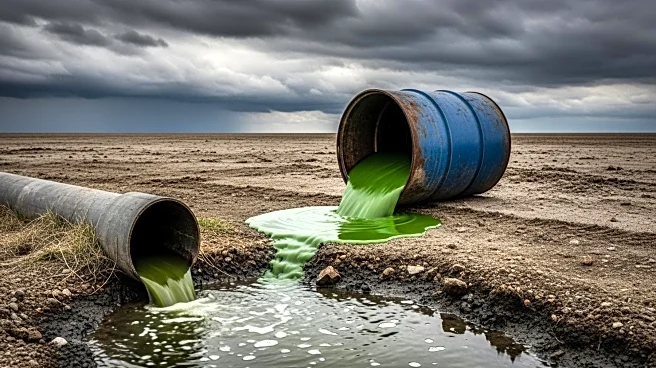What is the story about?
What's Happening?
In England, over 750,000 tonnes of toxic landfill leachate are mixed with sewage and spread on farmland annually. This practice involves transporting leachate, a chemical-laden liquid from landfills, to sewage treatment works where it combines with domestic sewage to create sludge. This sludge is then sold as fertilizer. However, many toxic chemicals, including carcinogens and microplastics, escape treatment and contaminate waterways and fields. The Environment Agency and water companies are under scrutiny for inadequate regulation and monitoring of this process.
Why It's Important?
The revelation of this practice raises significant environmental and public health concerns. The presence of toxic chemicals in agricultural land and waterways poses risks to food safety and ecosystem health. The situation highlights the need for stricter regulations and improved treatment technologies to prevent chemical contamination. It also underscores the challenges in managing waste and the potential long-term impacts on soil and water quality, which could affect agricultural productivity and public health.
What's Next?
The Environment Agency is working to draft new permits for tankered waste and improve monitoring at sewage treatment works. There is a call for a national plan to address 'forever chemicals' like PFAS, with water companies advocating for a producer-responsibility scheme. The situation may lead to policy changes and increased investment in advanced treatment technologies. Environmental groups are considering legal action to ensure compliance with environmental protection standards.
















